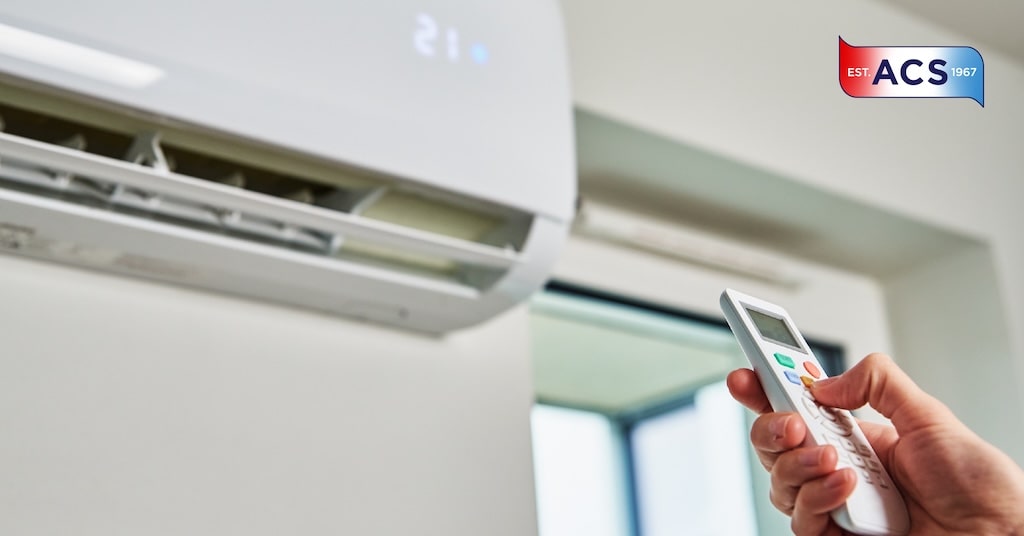What is HVAC?
Your HVAC system is a crucial component of your home or business that dictates both comfort and breathability. Unless you’re a professional like the team members at ACS, you don’t need to know exactly how it works, but it doesn’t hurt to know the basics. Below, we detail what HVAC means and how it works to heat you up or cool you off.
What Does HVAC Stand For?
HVAC stands for heating, ventilation, and air conditioning. It represents the entire system that facilitates your air quality and temperature control. An HVAC system essentially takes in air, heats or cools it, and redirects that air back into your home or business.
Heating
Heat pumps are one heating method that involves drawing cold outside air over a refrigerant. Heat is drawn over the refrigerant, heating the system’s coils, and the air is then drawn over the coils. It then blows into the home to heat it.
Furnaces are another common heating method. Gas furnaces operate by the HVAC system drawing air in through the ducts and forcing it into the furnace, which heats the heat exchanger through the combustion chamber. Air travels through the exchanger and is blown into the home via the ducts. Oil furnaces are rare, but they work similarly. Oil is pumped through a filter from a reserve tank and into a chamber. There, it becomes a mist to spray on the burner, which ignites and heats the heat exchanger. Air is then forced into the exchanger and blown through the house or building.
Ventilation
Ventilation involves your air handler, ducts, return vents, and blower assembly. They work together, providing mechanical ventilation that reduces humidity and normalizes temperatures. Essentially, the bad air is pushed out while the good air is drawn in. Without proper ventilation, dirt or bacteria can build up, leading to discomfort and health problems, so it’s an essential component of a functioning HVAC system.
Air Conditioning
An air conditioning system draws air in and forces it over the evaporator’s coils. It then moves to the air handler before it’s sent to the ducts. It absorbs heat, and the refrigerant vaporizes. The refrigerant then goes to the compressor that pressurizes it, lands on the condenser, and is turned back into a liquid. During this process, it expels heat that is blown by a fan, thus cooling the space.
Types of HVAC Systems
There are different types of HVAC systems depending on your personal needs. We can help you determine the best system for you but read below to learn more about the different types of HVAC systems.
Split System A split system, or a forced-air system, has a unit inside and outside the home. It may consist of a furnace and AC unit, an air handler and heat pump, or a furnace and a heat pump, depending on the climate in which you live. Typically, split systems are ideal for larger spaces. They tend to be efficient, customizable, and low maintenance.
Hybrid Heat Pump The central heating system, or a dual-fuel system. includes an electric heat pump and a furnace. The heat pump heats the home during mild seasons, while the furnace kicks in during the colder months. They work in tandem to provide ultimate comfort and efficiency.
Ductless Mini-Split This system involves a compressor, condenser, and an indoor air handler. Ductless mini-split systems are advantageous when you need to heat rooms individually, like in a multifamily complex. They offer easy installation, energy-saving qualities, and design flexibility.
Ducted Mini-Split A ducted mini-split system involves tubes that move air inside from an outdoor compressor and condenser. The indoor unit connects to HVAC ducts to distribute air, heating and cooling a house. Ducted mini splits offer flexibility, energy savings, and comfort and can be installed in ceilings, attics, closets, or under the floor.
Packaged System A packaged system has the same components as a split system, except that they are housed outside. They are ideal for smaller spaces and homes. Packaged systems are energy-efficient and allow for maximized space efficiency.
If you want to know more about your HVAC systems or need help with maintenance, repairs, or replacements, ACS can help. We’re your local, trusted experts in all things HVAC. Reach out today, and one of our professionally trained technicians can help you as soon as possible.



